Bradycardia refers to abnormally slow heart rate, which can be either physiological or pathological. While some people are born with this condition, others develop it later in life due to different reasons, including certain medications, sleep apnea, or other medical conditions.
Bradycardia, or low heart rate, can cause fatigue, dizziness, and lightheadedness. In some cases, it’s caused by an underlying illness that needs to be treated before your heart rate can return to normal levels, while in other cases, it’s the result of an underlying serious heart problem. If left untreated, bradycardia can put you at risk for more serious medical issues such as syncope, heart failure, or death. Read on to learn more about bradycardia and how it’s treated.
A short history of heart rate
The heart rate is how many times per minute your heartbeats. The average resting heart rate for an adult with a healthy cardiovascular system is around 60 to 100 beats per minute. Your pulse, or pulse rate, may reflect the heart rate in most patients.
How low is bradycardia
A heart rate less than 60 beats per minute is bradycardia.
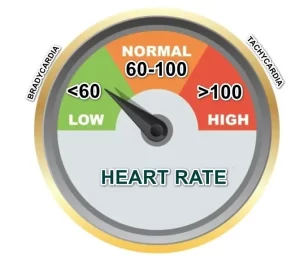
What causes bradycardia?
The heart can beat too slowly if:
Electrical signals arise slowly from the heart -sinus bradycardia.
Electrical signals arise normally, but as they travel around the heart, it becomes slowed or obstructed – Atrioventricular block (AV block).
A slow heartbeat is common among athletes. Heartbeats typically slow down while you sleep. So, bradycardia may not always indicate a severe problem. Such people can have bradycardia and be healthy.
Bradycardia can be caused by certain drugs, particularly those used to treat cardiac issues or high blood pressure.
Bradycardia can also be caused by a problem or condition, such as:
An issue with the heart’s electrical system – Changes in your heart due to aging are common causes of low heart rate. With age, the electrical system of the heart may become non-functional
Genetic problems often cause bradycardia in young people. Certain Genetic problems can damage the electrical system of the heart.
Recent heart operation or a heart attack
Certain Congenital heart disease
Cardiomyopathy
Myocarditis (inflammation of the heart muscle)
Coronary artery disease
Infections of a certain type – Lyme disease(a type of tick-borne illness) and Typhoid fever
Thyroid hormone levels that are excessively low (hypothyroidism)
An unusually low body temperature (hypothermia)
A very high potassium level in the blood (hyperkalemia)
Sleep apnea: a condition in which people stop breathing for brief periods while sleeping.
Anorexia nervosa: an eating disorder in which patients lose more weight than they should.
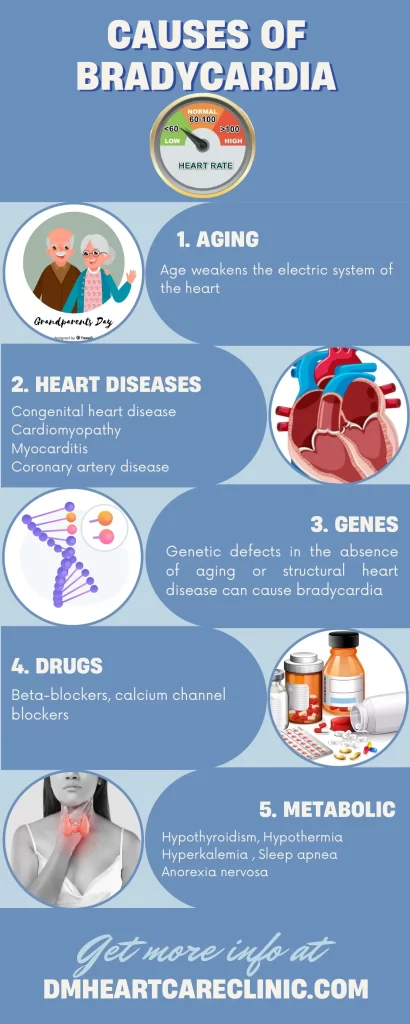
What is physiological bradycardia?
Bradycardia can be typical in athletes and other physically active persons, even if it is as low as 50 beats per minute. Regular exercise enhances the heart’s ability to pump blood efficiently, requiring fewer cardiac contractions to meet the body’s demands. So they will have a slow heart rate or bradycardia.
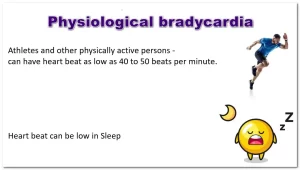
Bradycardia during sleep
It’s also typical for people to have low heart rates while sleeping, which is perfectly acceptable. It is most often sinus bradycardia. Bradycardia is caused by a drop in metabolism at night and changes in hormone levels in the blood.
Bradycardia beta-blockers
The most common drug to cause bradycardia is beta-blocker. A Beta-blocker is a kind of blood pressure-lowering medicine that slows the heart rate. A few examples are:
Atenolol
Bisoprolol
Metoprolol
Nebivolol
Propranolol
Some calcium channel blockers can also lower heart rate. These drugs treat angina (chest pain) and control an irregular pulse. A few examples are:
verapamil
diltiazem
What do the signs and symptoms of bradycardia look like?
Bradycardia can be present in many ways. Some people experience no symptoms, while others may have palpitations, lightheadedness, or dizziness. Bradycardia can even signify something more serious; for example, a low heart rate in one person could indicate something very different from a low heart rate in another person.
symptoms can include the following:
- Feeling dizzy or light-headed.
- fainting spells or having the sense that you are about to faint
- Feeling fatigued
- Chest ache
- Breathing problems or dyspnea
- Swelling of the feet
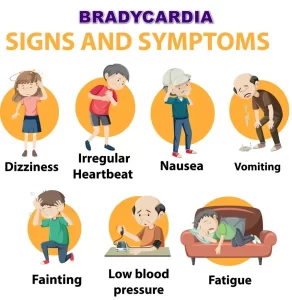
When to worry about low heart rate
When you have symptoms, you should worry. Call your doctor or nurse if you or your child are experiencing bradycardia signs and symptoms.
Is there a way to diagnose bradycardia?
Yes. If you or someone else has symptoms of bradycardia, your cardiologist will do a physical exam. They may also check your heart rate by feeling for a pulse in your neck or wrist and listen to your heart during the examination. Next, Your doctor advises an ECG test. An electrocardiogram (ECG) is a test that assesses the heart’s electrical activity. ECG gives a lot of information about the mechanism of slow heart rate. According to the ECG report, he will decide on the subsequent management plan.
Sometimes, the heartbeat fluctuates and can be normal when you visit the doctor and slow down at home. Then, Your doctor may want to keep track of your heartbeat for several hours or days. If this is the case, you will be required to wear or carry a cardiac monitor device at home. This instrument will measure and record heart rate, which is known as a “Holter monitor.” While wearing or carrying the monitor, you should continue to complete your typical activities. While you’re wearing the monitor, jot down any symptoms you’re experiencing. Your doctor decides if bradycardia is to blame for your symptoms. After your doctor has confirmed that you have bradycardia, they may conduct testing to determine the cause. Blood testing is one example.
Bradycardia blood test
Thyroid profile, including TSH
Serum electrolytes including serum potassium, serum magnesium
Other tests
1. Electrocardiogram (ECG)
2. Holter monitor: 24 to 72 hours recording of heart electrical activity
3. Event recorder: Records heart electrical activity over months
4. Echocardiogram: To identify structural heart diseases that can cause bradycardia like cardiomyopathies and congenital heart diseases
5. Electrophysiology (EP) study: The mechanism of bradycardia can be diagnosed reasonably accurately with an EP study. However, in most cases, an EP study is not required to obtain a diagnosis. A long, thin catheter is threaded up a vein to the heart.
6. Coronary angiogram: Blockages in the heart vessels can cause bradycardia
What is the treatment for bradycardia?
Your symptoms and the cause of your bradycardia decide the treatment plan. If you don’t have any symptoms, treatment may be unnecessary. If you have symptoms, you will almost certainly require medical attention. The most effective treatment lies in addressing its underlying cause. Any medicines that may be lowering your heartbeat may be changed or stopped by your doctor. A “pacemaker” is a device that is used to cure bradycardia in some persons. A pacemaker is a device that transmits electrical signals to the heart. These signals assist the heart is beating normally.
Bradycardia treatment drugs
Atropine – Most commonly used drug that is given into your vein
Adrenaline (epinephrine)- available in injection
Dopamine- available in injection
Orciprenaline- available in tablet
Types of pacemakers
- Single chamber pacemaker
- Dual-chamber pacemaker.
- Biventricular pacemaker or cardiac resynchronization therapy (CRT)
- Temporary pacemaker
- External pacemaker
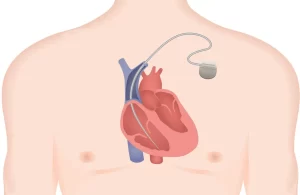
Bradycardia: risks
When your heart rate falls below 50 to 60 beats per minute, you’re at risk for several conditions. Bradycardia can slow down brain activity, reduce your body’s oxygen supply and make you feel faint or dizzy. It also raises your risk of heart failure. It can cause cardiac arrest and death.
- Heart failure
- Cardiac arrest
- Death
Can slow heart rate cause a heart attack?
No. a slow heart rate can not cause a heart attack. But heart attack can cause slow heart rate.
Can slow heart rate cause cardiac arrest?
Yes. Bradycardia is one of the causes of cardiac arrest.
Bradycardia: foods to avoid
Potassium and magnesium are a type of Electrolytes that are required for healthy heart function. Bradycardia can be caused by magnesium and potassium deficiency or excess. If you have a low potassium level in your blood, your doctor may advise you to take potassium-rich food like fruits. Avoid foods high in potassium, such as bananas, squash, and lima beans, if your blood potassium levels are high.
Your diet should be low in fat and high in vegetables and whole grains for optimum heart health. Being underweight can reduce your heart rate. Therefore you should eat enough calories to maintain your average weight.
Is it safe to exercise with bradycardia?
If you have physiological bradycardia, doing all kinds of exercise is safe. Regular walking and other lowe intensity exercises are safe in such cases. If you have bradycardia with no symptoms, ask your doctor what practices are better.
If you are experiencing symptoms of bradycardia, you need medical attention and treatment. You can resume physical activity once the issue is resolved.
Bradycardia and hypotension
A combination of bradycardia and low blood pressure is usually a serious condition. This needs immediate medical attention. Slow heart rate is often the cause of low blood pressure but not vice versa.
Bradycardia and hypertension
Bradycardia in a patient with high blood pressure is most often due to drug effects. Few drugs that are used to treat high blood pressure can reduce heart rate.
Bradycardia in newborn
A reduction in heart rate of 30 beats per minute from baseline is considered bradycardia. When the heart rate is less than 100 beats per minute is also called bradycardia. Low oxygen in the blood is the most common cause. Low body temperature (Hypothermia), dehydration (hypovolemia), head injury, and drugs are other reasons for bradycardia. ECG and 2d echo tests in newborns may be helpful.
Fetal bradycardia
A sustained fetal heart rate of fewer than 110 beats per minute is known as fetal bradycardia. Ultrasound and fetal echocardiogram tests determine the cause and complication of fetal bradycardia. Your doctor may advise blood tests like anti-Ro/SSA and anti-La/SSB to know the reason.
Bradycardia and covid
Bradycardia is a common heart problem associated with Covid-19.
Bradycardia in Covid-19 patients can arise even if there is no previous history of bradycardia. There are several causes for the same. Low oxygen levels and elevated hormone levels (cytokines) are just a few causes.
Who to consult for bradycardia in Hyderabad?
Dr. Malleswara Rao is a cardiologist doctor in Hyderabad specializing in treating arrhythmias like bradycardia. He has done several successful pacemaker surgeries in Hyderabad. What causes a heartbeat that is too slow
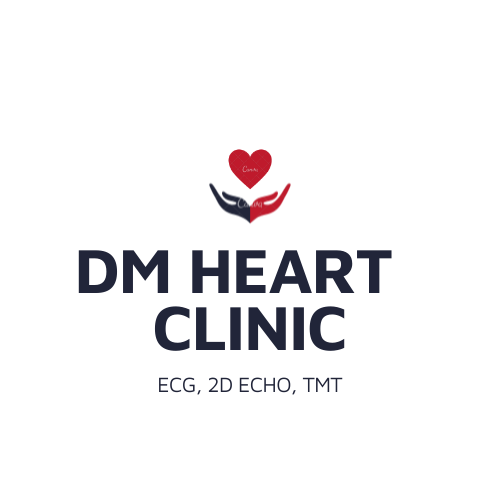
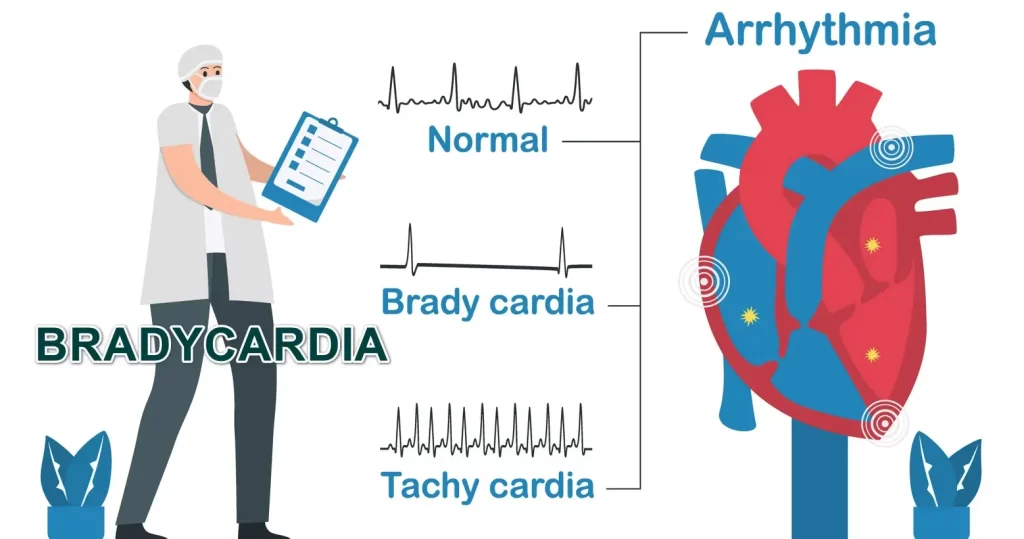
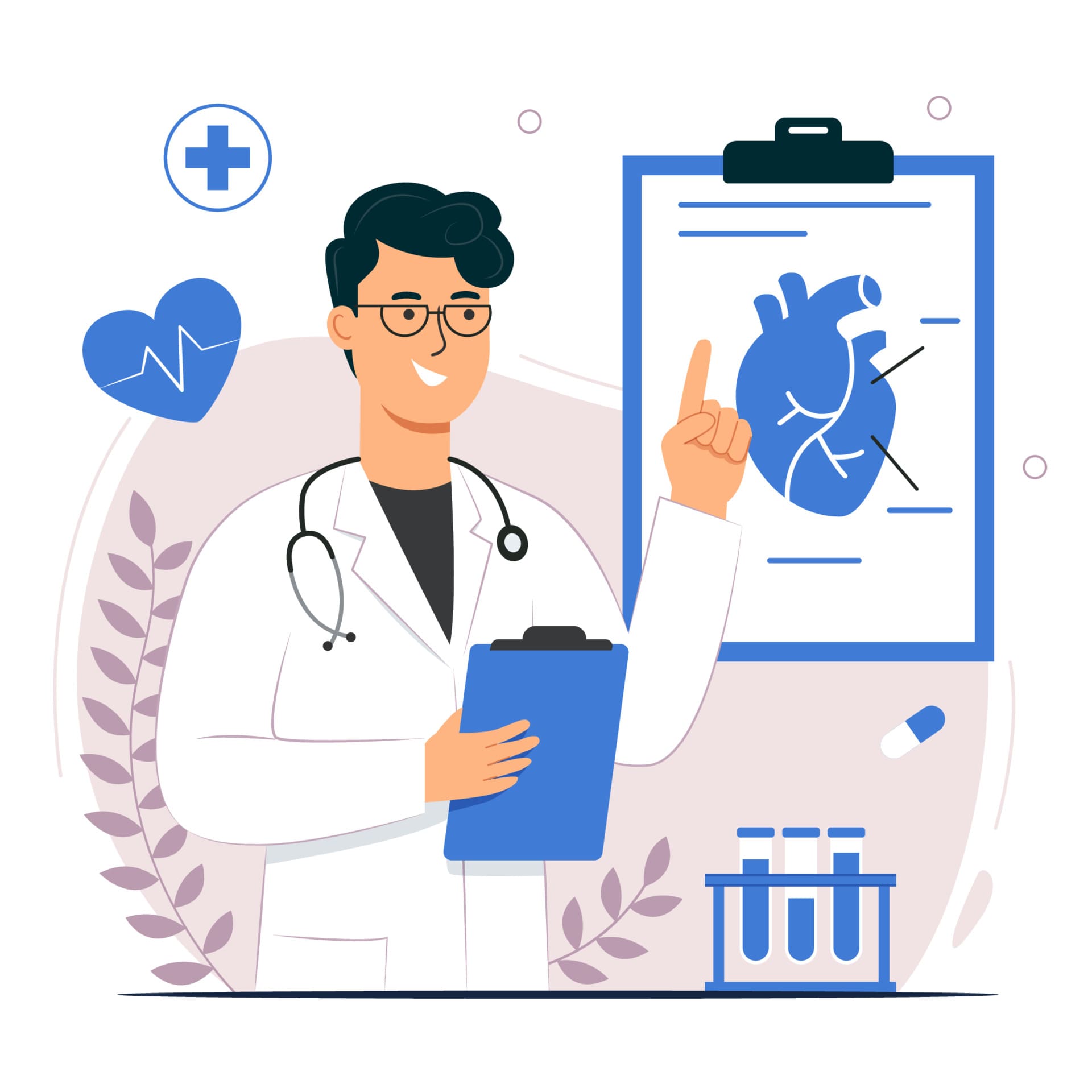
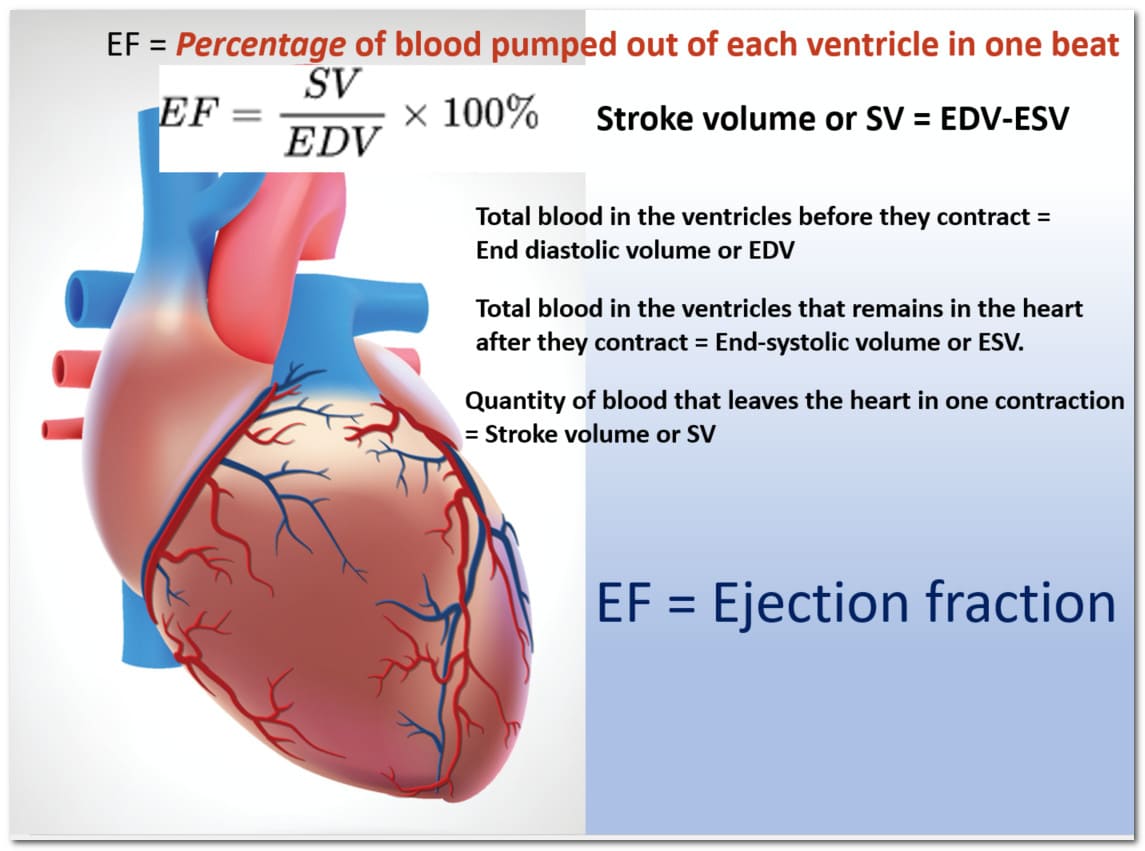
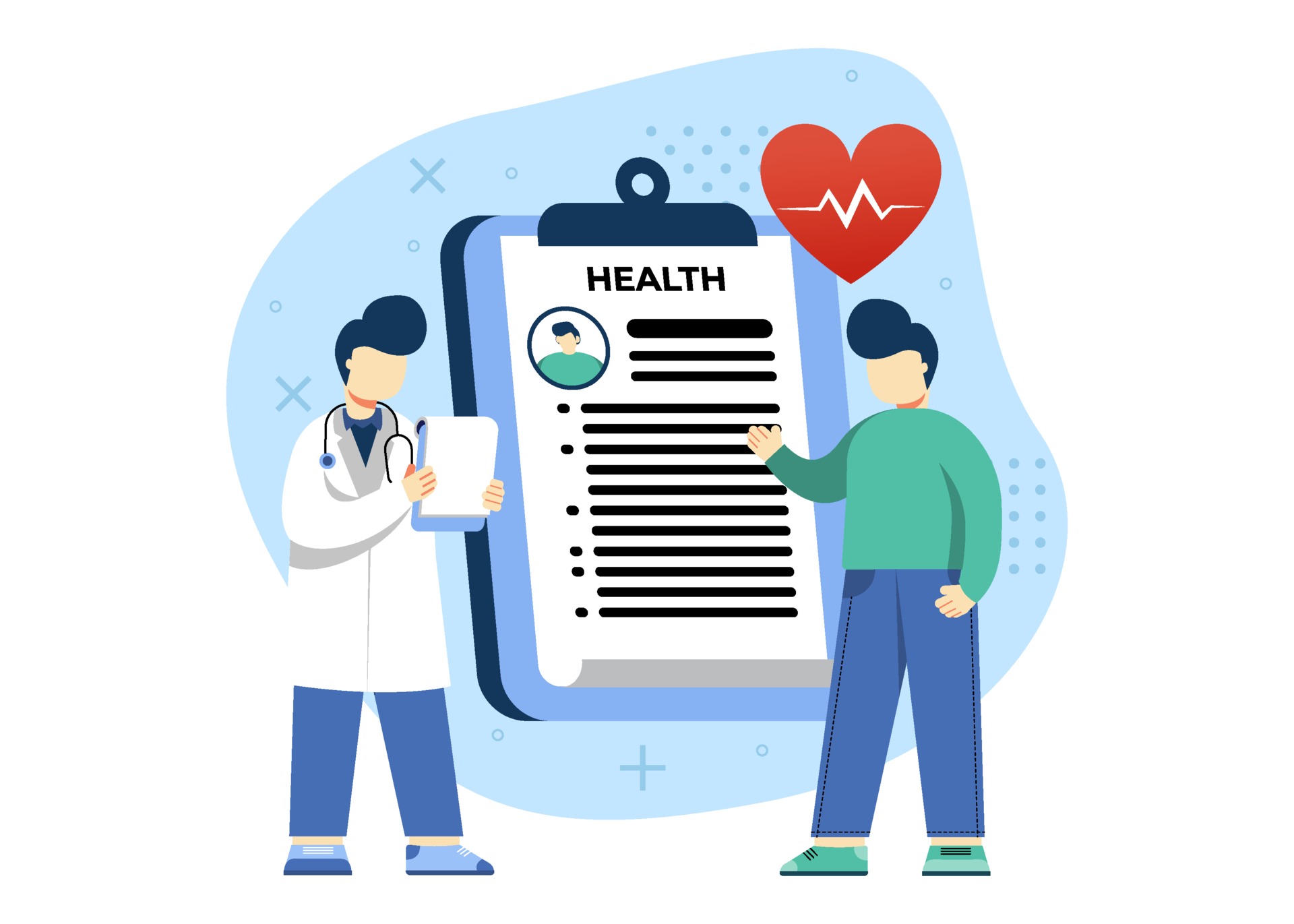
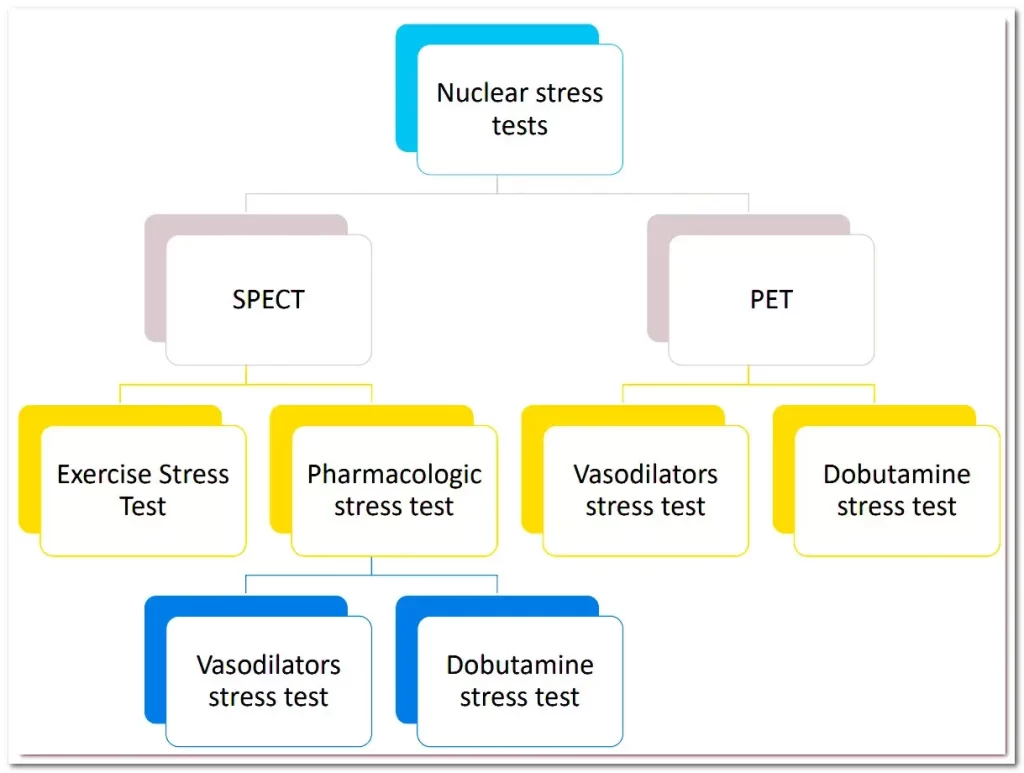


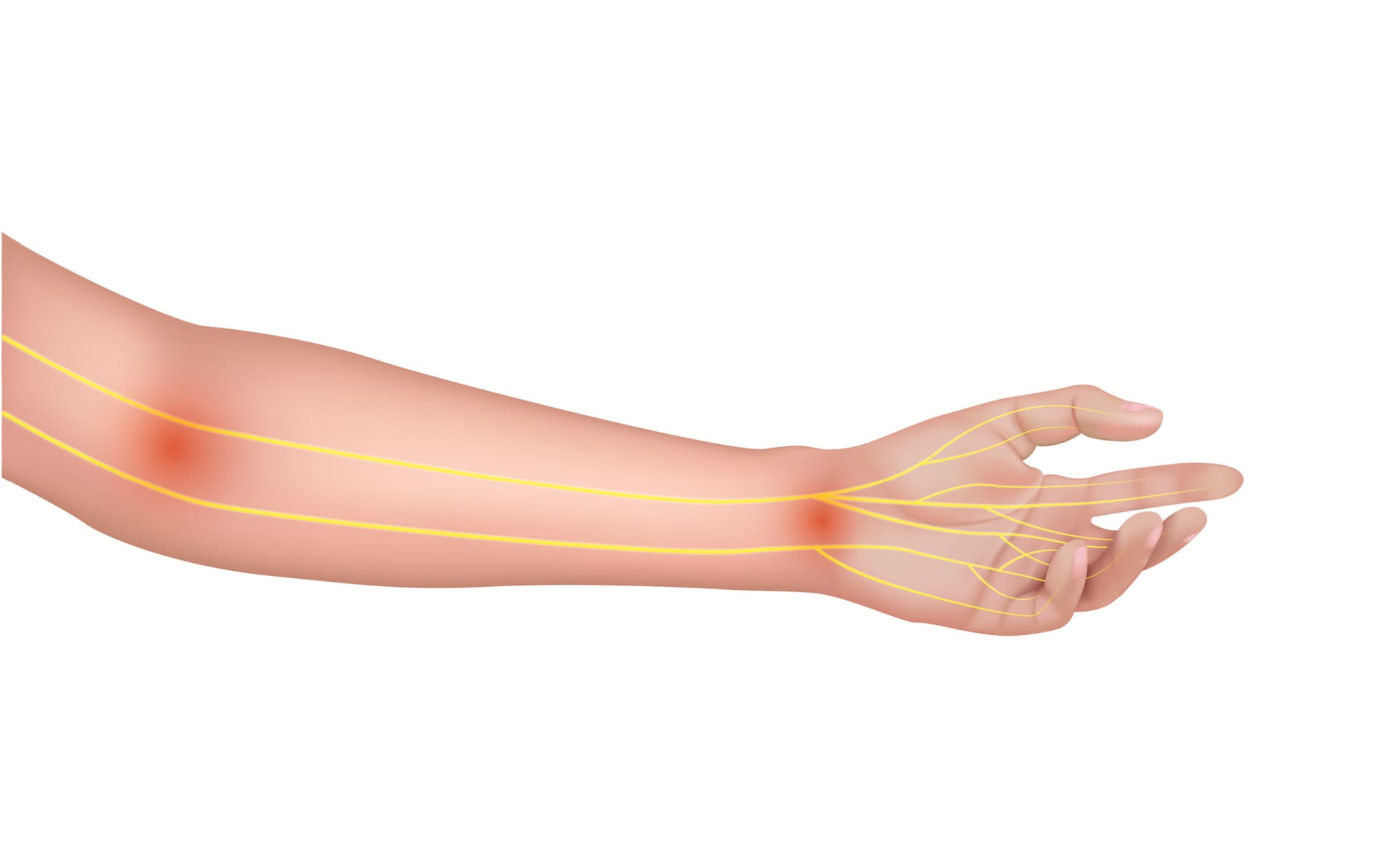



Pingback: CARDIOLOGIST IN OLD CITY OF HYDERABAD - DM HEART CARE CLINIC
Pingback: ASD DEVICE CLOSURE: Do You Really Need It? - Dr. Malleswara Rao
Pingback: 10 reasons to take fish in heart patients - DM HEART CARE CLINIC
Pingback: ECG test in Telugu | ఈసీజీ పరీక్ష - DM HEART CARE CLINIC
Pingback: Basic heart checkup tests in Hyderabad - CARDIOLOGIST IN HYDERABAD FOR ECG, 2D ECHO & STRESS TEST